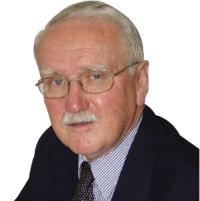 One of my favourite books in the New Testament is the Acts of the Apostles. We read it each day at Mass in these weeks after Easter. It is the story of how the church began. They were challenging times for the apostles and disciples. Although they believed Jesus had risen they only slowly realised that Jesus was not going to return immediately. They were on their own and suddenly responsible for the future of the community. What were they to do? Where were they to go? How were they to relate to the Gentiles? What did it mean to be and live as a Christian?
One of my favourite books in the New Testament is the Acts of the Apostles. We read it each day at Mass in these weeks after Easter. It is the story of how the church began. They were challenging times for the apostles and disciples. Although they believed Jesus had risen they only slowly realised that Jesus was not going to return immediately. They were on their own and suddenly responsible for the future of the community. What were they to do? Where were they to go? How were they to relate to the Gentiles? What did it mean to be and live as a Christian?
In the Acts of the Apostles it is the Spirit that plays the major role in converting, empowering and guiding the early Christians. The Spirit emboldens them at Pentecost (Acts 2), who strengthens Stephen at his martyrdom (Acts 7) and who tells Philip to “get up and go south to the road that goes down from Jerusalem to Gaza” and there talk with the Ethiopian Eunuch (Acts 8). In Acts 10 & 11 we learn how the Spirit told Peter to go to Cornelius’ house and to baptize Cornelius because he had received the same Spirit. Later the Spirit helps the community in Antioch to choose Paul and Barnabas and send them off on a mission to Asia Minor [Acts 13]; the same Spirit will prevent Paul from speaking further in Asia and through the appearance of the Macedonian man in a dream invites him to go to Macedonia to preach. When the community was conflicted over whether the Gentile Christians had to be circumcised their conclusion at the Council of Jerusalem was “We and the Holy Spirit have agreed ….” (Acts 15, 28) I admire the audacity and the confidence of that statement. Finally, in Acts 19 the Spirit encourages Paul to go up to Jerusalem, where he was to begin his trip to Rome and eventually to his death.
The Acts of the Apostles is a book of searching and in their searching the early Christians relied almost solely on the Spirit. They seemed to look to the Spirit in all their decisions and crises. For some time, I wondered why always and only the Spirit? Until I realized that they had nothing else. The early Christians could not rely on the past and they didn’t have clear instructions from Jesus. They didn’t even have Paul’s Epistles or the Gospels which were yet to be written. They had to read the signs of the times and trust in the Spirit.
In some respects, I envy them and their appreciation of and confidence in the Spirit. I suspect we have too much in our heads to be forced back on the Spirit. We have the Gospels, the Scriptures, our tradition, popes, bishops, theologians and libraries of books and we have developed the habit of looking elsewhere than the Spirit.
Clearly, we cannot empty our minds of all we have learnt and especially of the Gospels and our Christian tradition, but it would be good if we were to pause in silence and try to listen to and rely on the Spirit to guide and empower us. Unfortunately, there tends to be too much rationality, information and talk in our modern Western world and our minds are busy, noisy and distracted.
Also, we Christians are great believers in teaching or education. When in doubt we publish a catechism or another book. We often feel that if we could only explain something better, then people would understand and believe. But we neglect mystery and especially knowing the mystery that is within us and which ultimately nourishes us.
We are living at a time when the old certainties have been eroded and the new solutions are not yet convincing. Many are struggling to find out what God is asking of them. This is not unlike the situation the early Christians faced in the Acts of the Apostles. It was also a book of searching. The early Christians could not rely on the past. They had few traditions, no Christian scriptures and no established institutions or structures of authority. All they could rely on was their faith in Jesus and the guidance of the Holy Spirit.
Columban Fr Noel Connolly is a member of the Adult Formation Team with Catholic Mission Australia and is a member of the Facilitation Team for the Plenary Council 2020.
Related links
- Read more from the current Columban eBulletin

